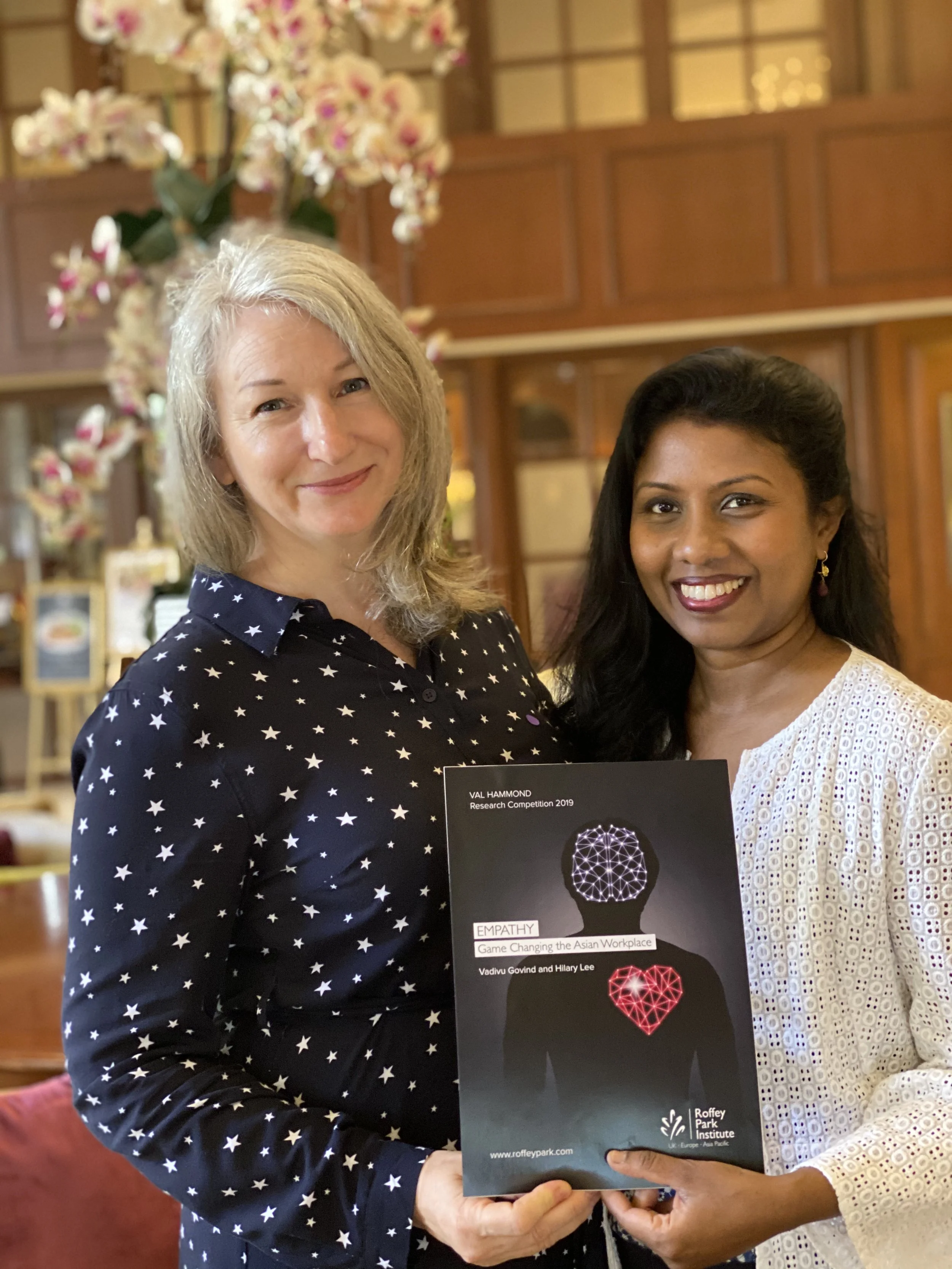Winner 2019 Roffey Park competition Asia Empathy: Game changing the Asian workplace
Executive Summary
We are living in the age of the Anthropocene - an age where human decisions and activity have shaped our environment to the point of potentially no return.
Alarming signals of climate change, environmental and resource pressures, technological change and influence - in confluence with global political change and major socio demographic shifts - will continue to have unprecedented and uncertain ramifications on how humans will be living and working, into the next decade and beyond.
Across Asia, the ‘world’s most disaster-prone region’ (CNN, 2019), people are particularly vulnerable to the impacts of such uncertainty, given our heterogeneous geographies and cultures, inequalities, rapidly shifting commercial landscape, and mass labour and migration patterns.
Yet we are also in a uniquely powerful place to more proactively and positively shape the change, given our size, our dynamism and advantaged growth.
This paper argues the momentum for influence and opportunity for changing the game lies as much with the private sector as it does with government. We need CEOs, leaders, businesses and other organisations to collaborate, to act as a catalyst for the transformation of our incumbent, outdated approaches toward humanity’s problem solving. To universally adopt accountability for solving the challenges of people and of our planet, and to institutionalise this as a valid strategy for business wellness. To think bigger; to ground strategically in a useful purpose; to recognise the impact on all stakeholders of the multiple decisions made every day, for the long term as well as for tomorrow.
To get there, we most urgently must upgrade our understanding of the needs, tensions and values of the people,and communities that business serves, and also those of the workforce that supports business success. We need to ultimately build new, more enlightened paths to create new value and mobilise regenerative growth, if we are to survive, never mind to truly shape the change we need. We must champion purposeful brand building which consciously considers the wide ranging impact of our decisions, inside of the organization as well as out.
As technology also continues to transform the way we work and live, we too - as practitioners, decision makers and human beings - have a clear and pressing mandate to reflect more closely on our own human values and behaviours. With sweeping shifts made even bolder by AI and automation, we now have an opportunity to nurture all of our human advantages - our reasoning, our creativity, our intuition, our wisdom and our experience - and most critically our empathy. Above all, we must proactively nurture and reframe “soft skills” as “critical skills”, if we are to work productively as a complement to machines, rather than to continue to emulate them by divorcing ourselves from our uniquely human strengths.
Finally, we should dismiss employee wellbeing at our peril. The evidence is clear; businesses will no longer be able to operate without an overhaul of workplace practices; practices that have been so detrimental to the health and wellbeing of the very people business relies on to succeed. A new generation of customers is here to hold them to account.
Ultimately though, we must all be accountable if we are to survive what the future brings;if we are to lead itwith purpose, pace and scale. Are we to bemasters of our human destiny? Or will we look back in dismay on what we have createdand realise we becamearchitects of our own demise? Each of us gets to decide, and the time to choose is now.


